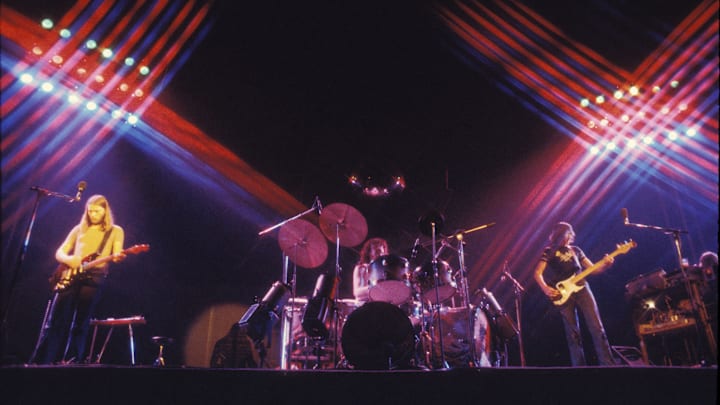“Set the Controls for the Heart of the Sun” from A Saucerful of Secrets (1968)
Syd Barrett was involved for some of the recording of Floyd’s second album, but his mental health issues were causing rapid deterioration. David Gilmour took over a lot of his guitar-playing responsibilities and bassist Roger Waters took on more of the songwriting and singing. That is especially true on side one of the album. “Set the Controls…” was an early indication of what Waters could accomplish.
But it is very much a team effort. He pulls his lyrics from thousand-year-old Chinese poetry and borrows the song’s title from fantasy writer Michael Moorcock. Musically, Nick Mason’s sinewy drum line dominates the song. Mason gets a muted tone using timpani mallets instead of sticks, which fits the quiet pulsating song perfectly. Wright’s multiple keyboards again run wild, but in a far more restrained manner than on some of Barrett’s more overtly pop tunes.
That restrained quality was not exactly met with approval from the rock press, who generally discounted Saucerful of Secrets. In retrospect, it was simply a band recognizing that its leader was vanishing before its eyes, and they would have to figure out a new way to create. As it turns out, they figured it all out pretty well.
“Arnold Layne” from Relics (1971)
“Arnold Layne” was Pink Floyd’s first single, released in 1967, before “See Emily Play.” But it was never included on an album until the compilation Relics four years later, after the band had already released five studio albums.
In many ways, “Arnold Layne” is the simplest song Pink Floyd released until they began including melodic acoustic songs as integral parts of their grandiose 1970s albums. It is relatively short – under three minutes. Mason only plays one keyboard – his instantly recognizable Farsifa organ. Barrett’s guitar fills are more subdued. The vocals are at the front of the mix.
And yet, this is still Pink Floyd. Few other bands sounded like this in 1967. That organ is still on a plane of its own. And the lyrics, about a particularly British kind of pervert with a fondness for washing purloined women’s undergarments, were not the typical subject matter of a pop song. By 2006, when David Gilmour had Richard Wright and guest David Bowie sing the song at the Royal Albert Hall, it was a cherished piece of nostalgia.
